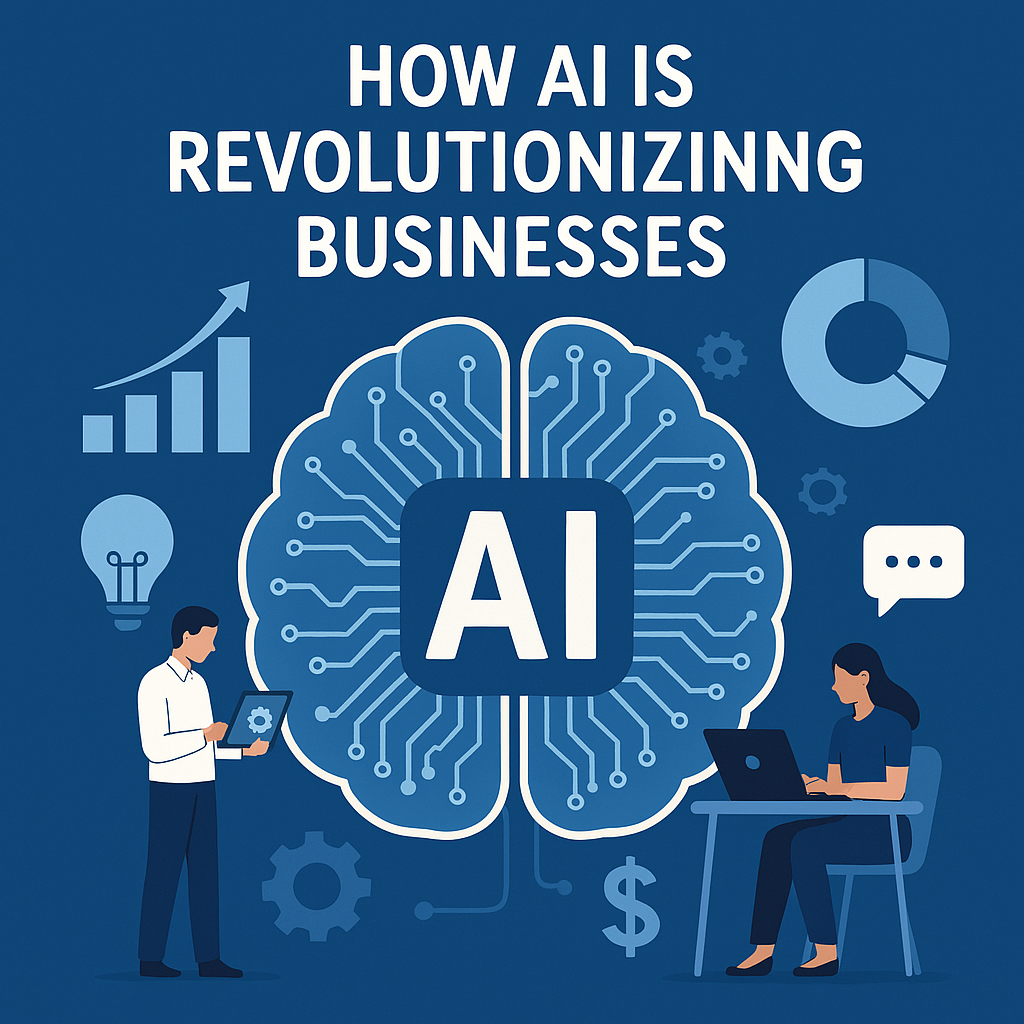By Wayne Brown
Artificial Intelligence (AI) is no longer a futuristic concept—it’s here, and it’s reshaping the way businesses operate. From automating tasks to enhancing customer experiences, AI is driving efficiency, innovation, and growth across industries. Here’s how businesses are leveraging AI to stay ahead.
- Automation & Efficiency
AI is streamlining operations by handling repetitive tasks that once required human effort. Businesses use AI-powered tools to manage data entry, scheduling, invoicing, and even customer inquiries. This automation saves time and reduces human error, allowing employees to focus on more strategic work. - Enhanced Customer Experience
AI-driven chatbots and virtual assistants provide 24/7 customer support, answering inquiries instantly. Personalization engines analyze customer data to offer tailored recommendations—just think of Netflix suggesting your next binge-worthy show or Amazon curating products based on past purchases. These innovations boost customer satisfaction and retention. - Smarter Decision-Making
Businesses are leveraging AI for data-driven insights. Predictive analytics helps companies forecast trends, optimize pricing strategies, and manage inventory more efficiently. AI can analyze vast amounts of data in seconds, providing actionable insights that improve decision-making. - Marketing & Sales Optimization
AI is revolutionizing marketing with hyper-personalization. AI-powered tools analyze consumer behavior, segment audiences, and deliver highly targeted ads. Marketers can optimize campaigns in real time, ensuring higher engagement and conversions. AI also assists sales teams by identifying potential leads and automating follow-ups. - Fraud Detection & Cybersecurity
In finance and e-commerce, AI-powered security systems detect fraudulent transactions by analyzing patterns and anomalies. AI continuously learns from new threats, making it an invaluable tool in protecting sensitive data and preventing cyberattacks. - AI in Hiring & HR
Recruiters are using AI-driven tools to screen resumes, schedule interviews, and assess candidates. AI can analyze employee sentiment and engagement, helping HR teams create better workplace environments. By reducing hiring biases and improving talent acquisition, AI is making HR more efficient. - AI in Manufacturing & Logistics
Manufacturers use AI-powered robots for precision tasks, reducing errors and increasing production speeds. In logistics, AI helps optimize routes, predict delivery times, and manage supply chains efficiently. This leads to cost savings and improved delivery accuracy.
Embracing AI: The Future of Business
While AI is enhancing efficiency and profitability, businesses must adopt it strategically. The key is balancing automation with human expertise—AI should complement, not replace, human decision-making. Companies that embrace AI will gain a competitive edge, while those that resist may struggle to keep up.
AI is not just changing business—it’s redefining it. Whether you’re a startup or a Fortune 500 company, integrating AI into your strategy can drive innovation, improve customer experiences, and boost your bottom line. The future is AI-powered—are you ready?

